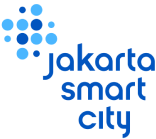Getting to Know Regulatory Sandbox
Have you ever heard of a regulatory sandbox? Smartcitizens who are actively involved in technology development may already be familiar with that concept. A regulatory sandboxis a testing environment designed to trial products, services, or technologies of the organiser. The testing is conducted in a safe and controlled manner.
Technology innovation is progressing rapidly in today's digital era. Therefore, a regulatory sandbox is necessary to facilitate various innovative developments. On July 14, 2023, Jakarta Smart City provided an in-depth experience on the regulatory sandbox through JSCLab Sharing #6. The event focused on the theme "Understanding Regulatory Sandbox and Its Utilisation in Several Cities Worldwide" featuring Prasetya Dwicahya. If you missed the event, you can catch up on it here!
Learning About Regulatory Sandbox
Prasetya Dwicahya is the Co-founder and Chief Operating Officer (COO) of Think Policy. As a social enterprise, Think Policy is responsible for improving Indonesia's public policy-making process to tackle more complex challenges. Examples of those complex challenges are climate change, digital transformation, and social inclusion. Think Policy involves the public in the development process in a participatory and inclusive manner.
Prasetya translates the term "regulatory sandbox" into Indonesian as "ruang aman" (safe space). He quoted a brief definition of the regulatory sandbox from the Government of Canada, stating that it is a safe space for businesses to innovate while the government oversees the process, collaboratively creating policies, rules, and guidelines to ensure that the innovation is safe, beneficial, and impactful for society.
The regulatory sandbox is useful for regulators to capture innovations that meet market and societal needs while maintaining appropriate regulations and policies. Prasetya also emphasizes that sometimes boundless innovation can lead to dangerous outcomes. For instance, he mentioned the case of OceanGate's submarine tourism attempting to explore the wreckage of the Titanic. It tragically resulted in the death of passengers inside the submarine.
"We can't allow that to happen in society, but we also can't hinder people from innovating because without that, there won't be new products, there won't be new services," Prasetya explains. That is why regulatory sandbox exists to address this challenge.
Five Key Success Factors of the Regulatory Sandbox:
The regulatory sandbox can be considered successful if it can provide a space for innovation and maintain appropriate protection. This protection is useful for safeguarding consumers and preserving the integrity of the regulatory framework. Prasetya also explained the five key success factors of the regulatory sandbox:
Source: Prasetya Dwicahya
Regulatory Sandbox in Indonesia and Other Countries:
The financial sector was inspired to carry out a regulatory sandbox from the health sector. The concept of drug tests which was initially carried out became the basis of the regulatory sandbox.
Prasetya informed that the financial sector in Indonesia and other countries has implemented more regulatory sandbox initiatives. This is due to the rapid pace of innovation in the financial sector, which involves significant capital. Here are some examples of regulatory sandbox implementations:
Indonesia:
Other countries:
JSCLab Sharing #6 Excitement
Two hours passed and all participants of JSCLab Sharing #6 became more informed about the regulatory sandbox. As usual, the event included a fun quiz session. Below are the lucky three winners who received gifts from the organisers.
We hope that the insights shared can be beneficial for the development of innovation and technology implementation in the future. JSCLab Sharing is always open to the public and can be your platform for knowledge-sharing. The event is always livestreamed on the Jakarta Smart CityYouTube channel, so do not forget to subscribe! To stay updated on future sessions, keep an eye on Jakarta Smart City's social media channels. See you next time!
.jpe)



